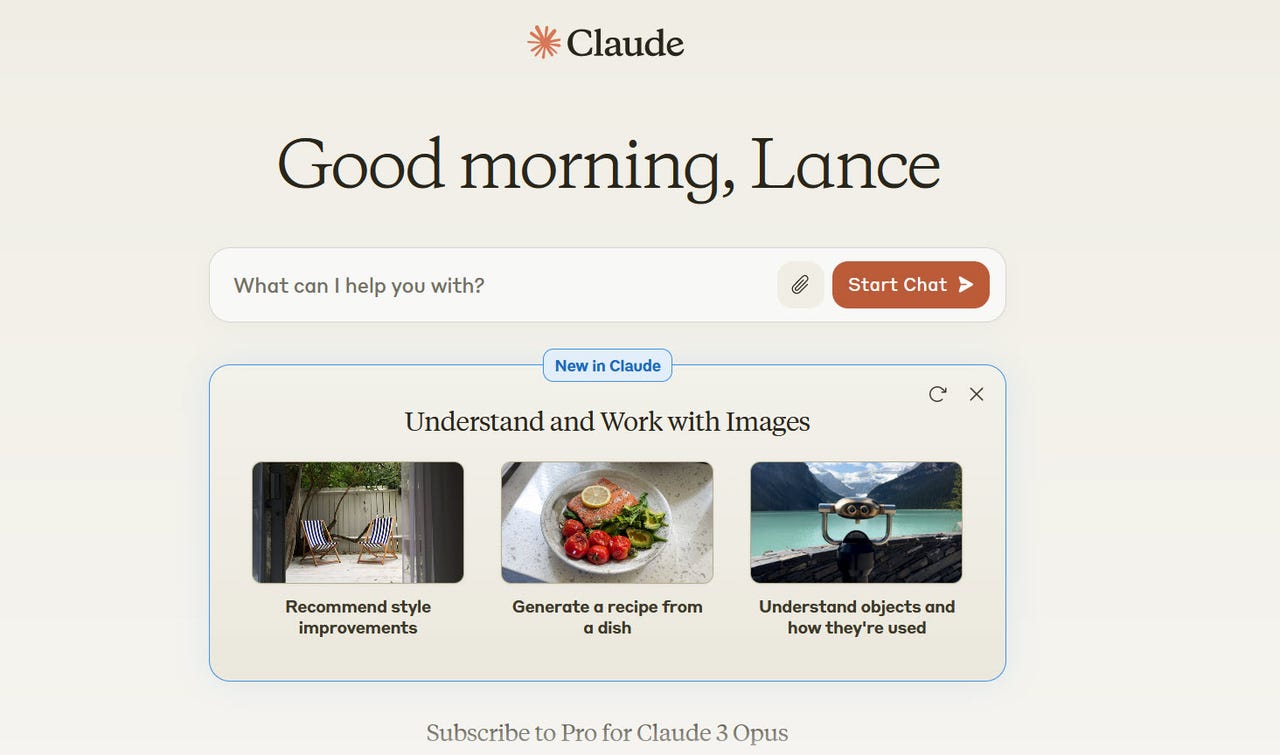Anthropic's Claude 3 chatbot claims to outperform ChatGPT, Gemini

Look out ChatGPT. Another AI chatbot is muscling in on your territory. Released on Monday, the third version of Anthropic's Claude AI is being touted as more skilled and knowledgeable and better at reasoning than OpenAI's ChatGPT and Google's Gemini AI.
Though Claude 3 is a single product, it offers three different models. The Opus and Sonnet models are now in play through the Claude 3 website and API for developers. The faster Haiku model will be available soon, according to Anthropic.
Also: I asked Gemini and GPT-4 to explain deep learning AI, and Gemini won hands down
Among the three models, Opus outscored GPT-3.5, GPT-4, and Google's Gemini in several key areas, based on Anthropic's research. Tested were such skills as common knowledge, undergraduate-level knowledge, graduate-level expert reasoning, basic mathematics, mathematical problem-solving, and coding.
With its more advanced training and knowledge, Claude 3 exhibits "near-human levels of comprehension and fluency on complex tasks," according to Anthropic.
Claude 3 also promises to be an improvement over past flavors of the AI.
The new version boasts much quicker response times, with Sonnet twice as fast as Claude 2 and Claude 2.1 and with greater intelligence, according to the testing. As such, Anthropic promotes this model as ideal for retrieving information or automating sales. Haiku is the fastest of the three, able to read a dense research paper with charts and graphs in under three seconds.
Anthropic also cites Claude 3 as being more accurate and less prone to errors than previous versions. To test this, the company threw a large number of complex and factual questions at the different models. Using the Opus model, Claude 3 managed twice as many correct answers compared with Claude 2.1 and produced fewer incorrect answers, or hallucinations.
Also: ChatGPT vs. Microsoft Copilot vs. Gemini: Which is the best AI chatbot?
In an effort to shy away from providing harmful information, AIs will often refuse to answer questions considered inappropriate. But sometimes they'll mistakenly interpret a harmless prompt as harmful. In Anthropic's testing, Claude 3 was less prone than previous versions to refusing to answer harmless prompts. In this regard, the three Claude 3 models showed a better understanding of requests and were better able to distinguish between harmful and harmless questions.
Anthropic also touts Claude 3 as easier to use, capable of accepting longer prompts, and better able to retain information from previous prompts.
Also: 8 ways to reduce ChatGPT hallucinations
One major improvement to Claude is its ability to accept uploaded files. You can now send it a variety of file types, including images, PDFs, text files, Microsoft Office files, CSV files, and HTML files. In response, Claude will analyze, summarize, and answer questions about the content in a file.
To give Claude 3 a whirl, head to its website. The free flavor of the site uses the Sonnet model to respond to your questions. For $20 a month, Claude Pro uses the more advanced Opus model along with certain perks such as priority access during peak times and early access to new features.
